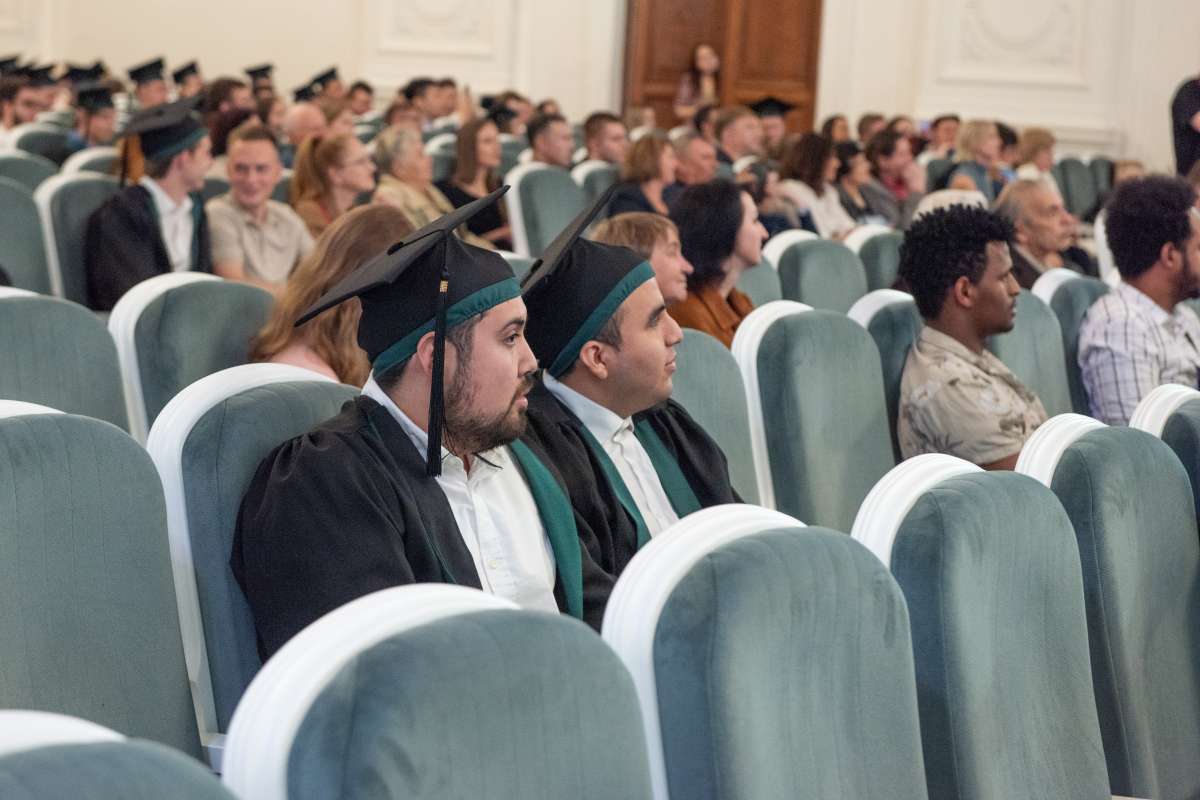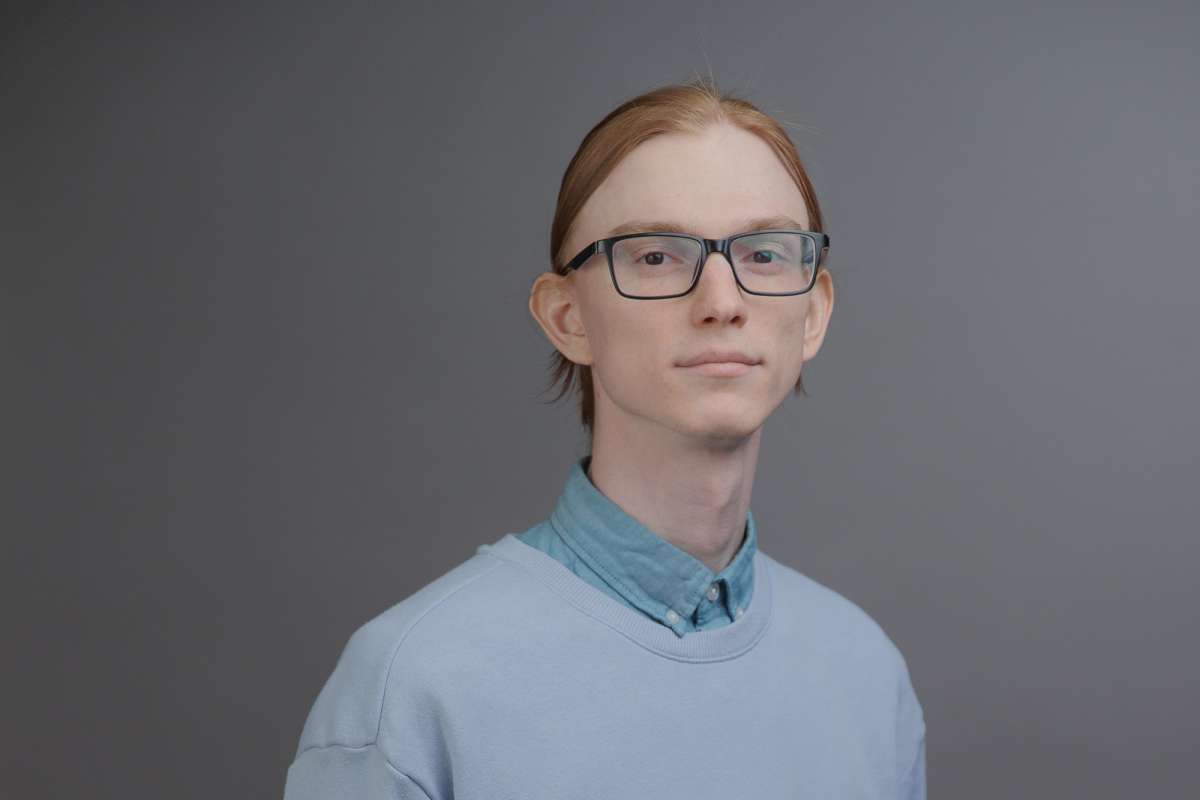Jesús Alejandro Echeverry Mendoza: Polytech, Petersburg, and the Russian Soul
-2.jpg)
Jesús has graduated with honors from the Master's program at Peter the Great St. Petersburg Polytechnic University. He shared his educational journey at the Institute of Energy, which began in his homeland, Bolivia, and will continue in the Polytech’s graduate school.
— Why did you decide to come to Russia and choose Peter the Great St. Petersburg Polytechnic University?
— At 18, I became fascinated with Russia. In Bolivia, there are still specialists who studied in the USSR, including some of my university professors. I was particularly impressed by Russia’s rich history and its engineering feats: the first satellite, the first nuclear power plant in Obninsk, and others. After finishing my bachelor’s degree, I decided it was time—and I chose St. Petersburg. The city captivated me with its culture, theaters, and museums. As for the Polytechnic, I chose it because of its century-old traditions—the university is already 126 years old!
— What were your first impressions of St. Petersburg and the university?
— My first impression? Very cold! I come from a bright, sunny country, and adapting to the climate was tough. But I still remember walking down Nevsky Prospect and being amazed by the city’s architecture! At first, I spent a year at the preparatory faculty—studying Russian. It was a fascinating process. Before coming, I had studied Russian for about a year in Bolivia, but only at a basic level. The prep course helped a lot. I also found it incredibly interesting to study basic subjects like physics and math in another language. Spanish is my native tongue, and Russian is very different from it. I was even surprised at how efficient Russian seems for science. In Spanish, we use a lot of words, whereas in Russian, the rules feel more logical. So scientific concepts can be explained more efficiently, with fewer words.
— You graduated with honors—that’s a huge achievement! What was the hardest part at the beginning of your studies?
— There were two main challenges. First, the language. Russian is considered one of the most difficult languages. Even after the prep course, I still struggled to understand all the professors right away. Over time, I mastered the language. Second, the big difference in education systems. It was hard to adapt because everything here works differently. In engineering, the Polytechnic has a very hands-on approach to problem-solving.
— What was your specialization at the Institute of Energy?
— My field is electric power engineering. I deliberately chose this broad area because of its versatility and the variety of specializations available. After exploring different career paths, I settled on the areas closest to me: energy ecology, autonomous systems, and renewable energy sources.
— How did you organize your time for effective studying? Any special methods?
— The key was that I wasn’t afraid to ask my professors any questions. They were always ready to help! I had a strong desire to deepen my knowledge, and they constantly supported me. Another important aspect was that I never stopped learning Russian. I was always curious, asking questions to my Russian classmates, who eventually became my friends. They, too, were always willing to help.
— Were there any difficulties in communicating with Russian students?
— Of course, at first, there were challenges. But from the very first days, people would come up to me, ask where I was from, and inquire about Latin America—what we have, what we don’t. That’s how the first connections were made. By the end of my master’s, I proudly realized that I had written my thesis in another language! It was a real challenge that required persistence and determination. There were moments of despair when I wanted to give up, but I knew I had to keep going.
.jpg)
— What were the biggest non-academic challenges you faced in Russia? Climate, food, daily life, mentality?
— At first, the climate! I arrived at the end of September. I’m still amazed that this city has two faces—winter and summer. It’s fascinating but tough. Second, the mentality was a bit of a challenge. We Latin Americans aren’t as straightforward as Russians. It was hard to get used to how fast everything moves here—straight to the point. And everything is constantly changing. Even the weather! In Bolivia, in my city, there are practically no seasons. Here, you constantly have to change clothes depending on the season. But it was a very interesting adaptation process.
— What did you come to love most about St. Petersburg?
— You can find everything here! It was the capital of the Russian Empire. When I see the old buildings, I feel like I’m in the 19th century! I visited theaters, museums—there’s always something new and exciting here.
— Have you been to other Russian cities?
— Yes, I’ve visited Murmansk, Moscow, and Bryansk. The contrast with St. Petersburg is striking. Moscow moves at a faster pace. However, the unique atmosphere of St. Petersburg felt closer to me. As modern as Moscow is, I realized: it’s not my city. Peter, which became my home, wins in terms of how it feels. Murmansk stood out for its harsh climate and the special mentality of its residents—the long winter seems to foster mutual support. The views of the Arctic Ocean and the tundra were breathtaking—completely different nature. The polar day and night—an experience that’s hard to grasp but incredibly impressive.
.jpg)
— How did studying at the Polytech change you?
— The Polytechnic changed me both as a professional and as a person. Thanks to my professors, I didn’t just gain knowledge—I immersed myself in the world of modern technologies and methods in electric power engineering that I had only heard about before. Now, holding my diploma, I feel that it’s not just a piece of paper but proof that I’ve become a real engineer. And life in Russia taught me much more than textbooks. St. Petersburg’s weather and all the difficulties made me stronger in spirit, teaching me patience and incredible perseverance. Now I know that to achieve a goal, you need not just brains but character.
— If you knew then, on your first day of study, what you know now, what advice would you give yourself?
— The advice is simple. Communicate with locals as intensively as possible from day one. It’s the shortest and most effective way to understand the cultural code, mentality, and the real "rules of the game" in studying and life in Russia. Knowing these nuances—from informal traditions to problem-solving approaches—turned out to be no less important than academic skills.
— What was the most unexpected or even shocking experience in your life and studies?
— The education system—that’s what surprised me the most! In Bolivia, a bachelor’s degree is a foundation without specialization. You only become a specialist in your master’s, choosing your one focus. Here, it’s completely different. You choose your specialization as early as your bachelor’s! The master’s is the next level. Can you imagine my surprise? Adapting wasn’t easy! During lectures, professors sometimes started in the middle—as if we had all skipped the first six chapters of a textbook and were supposed to understand the seventh right away.

— What are your plans after graduate school?
— I hope to become a teacher—either in my homeland or in another country. I’ve loved science since school. During graduate school, I’d like to combine studies with work here in Russia. Your country gave me the opportunity to study, and I’d like to test myself here. We’ll see.
— Do you think Polytech diploma will give you an advantage in employment, whether in Bolivia or another country?
— Yes, absolutely! Especially in Asia and Latin America. Employers value those who studied in Russia because they know you have a very practical approach and methods in engineering. In Latin America, St. Petersburg and the Polytech are well-known. A diploma from this university shows that a person has deep practical knowledge and can solve any engineering challenge.
— What’s your main advice or parting words for a future international student of Polytech?
— Believe in yourself and be persistent. Applying to and studying in another country is a challenge. Your confidence and perseverance will help you overcome any difficulties. Learn Russian—it’s the key. Without the language, studying, communicating, and making friends will be hard. Take an interest in the culture. Don’t be intimidated by the "seriousness." Russians may seem serious and direct. But! My experience has shown that behind this lies a genuine "Russian soul"! They’re reliable and always ready to help. Most importantly—be open, curious, and unafraid of new things. Studying at the Polytechnic is not just a chance to get an excellent education but also to experience an incredible adventure that will change you.



